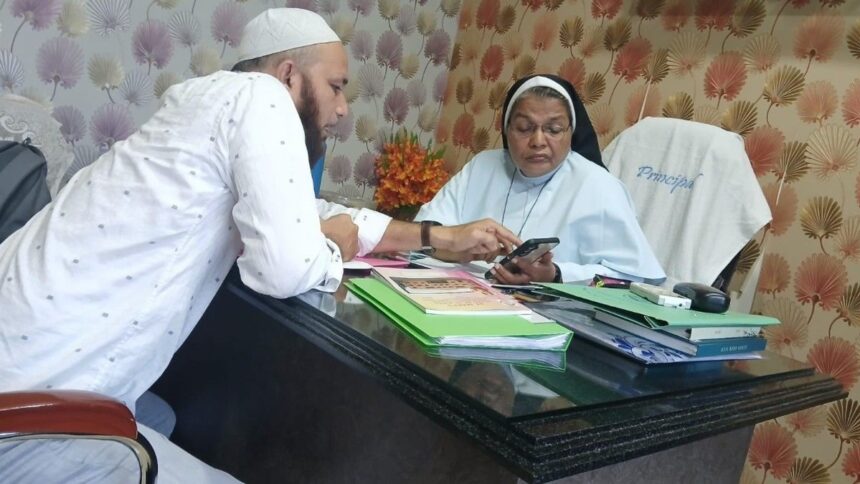Date: 5th August 2025
Location: St. Mary’s School, Chennai, Tamil Nadu
The ODOC Project continues its dedicated mission to combat child malnutrition by combining early detection with targeted nutritional interventions. As part of this mission, the ODOC team recently visited St. Mary’s School in Chennai, a key step in extending community engagement and reinforcing partnerships with educational institutions. The visit not only helped in discussing the technical aspects of implementing the ODOC assessment but also served as a meaningful dialogue to build trust and collective commitment towards child health.
Productive Meeting with School Leadership
During the visit, the ODOC team held a productive meeting with Sister Elvin, Head of St. Mary’s School. She expressed strong support for the initiative and granted approval to conduct the ODOC assessment within the school premises. The discussion highlighted the school’s proactive approach in addressing malnutrition and its openness to collaborate with projects aimed at student well-being.
It was agreed that the program would begin with a pilot assessment in one class, which allows the team to closely monitor the process and adapt as needed. This phased approach ensures smoother implementation and provides flexibility to combine two classes if required for more comprehensive coverage. By taking gradual but deliberate steps, the program aims to avoid disruptions while maximizing its impact on students’ health.
Scheduled Assessment and Nutritional Intervention
The ODOC assessment at St. Mary’s is scheduled to begin on 6th August 2025. The school management assured their full cooperation and timely updates in case of any adjustments to the schedule. Once the assessment is complete, all identified undernourished children will be enrolled in the next intervention phase of the project.
This phase includes the distribution of Spirulina supplementation, a nutrient-rich superfood recognized globally for its high protein, iron, and micronutrient content. By integrating Spirulina into children’s diets, the program seeks to improve nutritional status, strengthen immunity, and support overall physical and cognitive development.
Building Long-Term Impact
The collaboration with St. Mary’s School exemplifies the importance of partnerships between community-based institutions and health initiatives. Schools play a vital role in early detection, as they are often the first space where signs of malnutrition can be identified. Through this cooperative effort, both the ODOC team and the school leadership are working hand-in-hand to ensure children have access not only to education but also to the nutritional support necessary for their growth and well-being.
Conclusion
The follow-up visit to St. Mary’s School highlights the ODOC Project’s ongoing commitment to improving child health through practical, community-centered strategies. By securing the support of school leadership and implementing phased assessments, the project is ensuring that interventions are sustainable, effective, and child-focused. The upcoming Spirulina supplementation phase is another powerful step toward reducing malnutrition rates and promoting healthier futures.
Through such collaborations, the ODOC Project continues to demonstrate how awareness, early detection, and nutritional support can create lasting positive change in the lives of children and communities.




